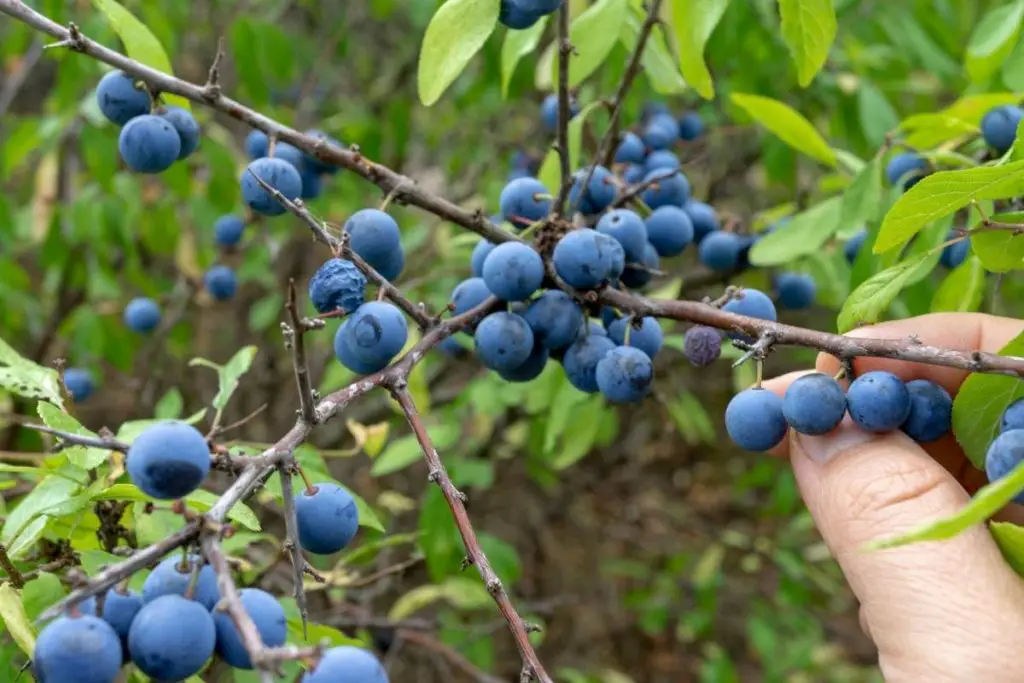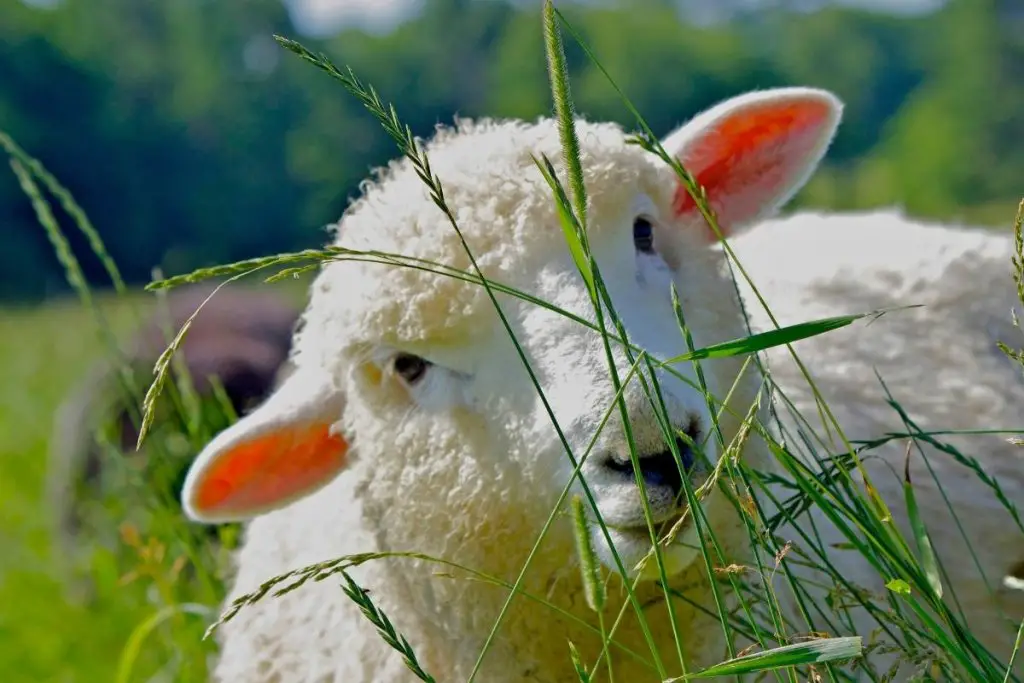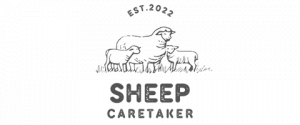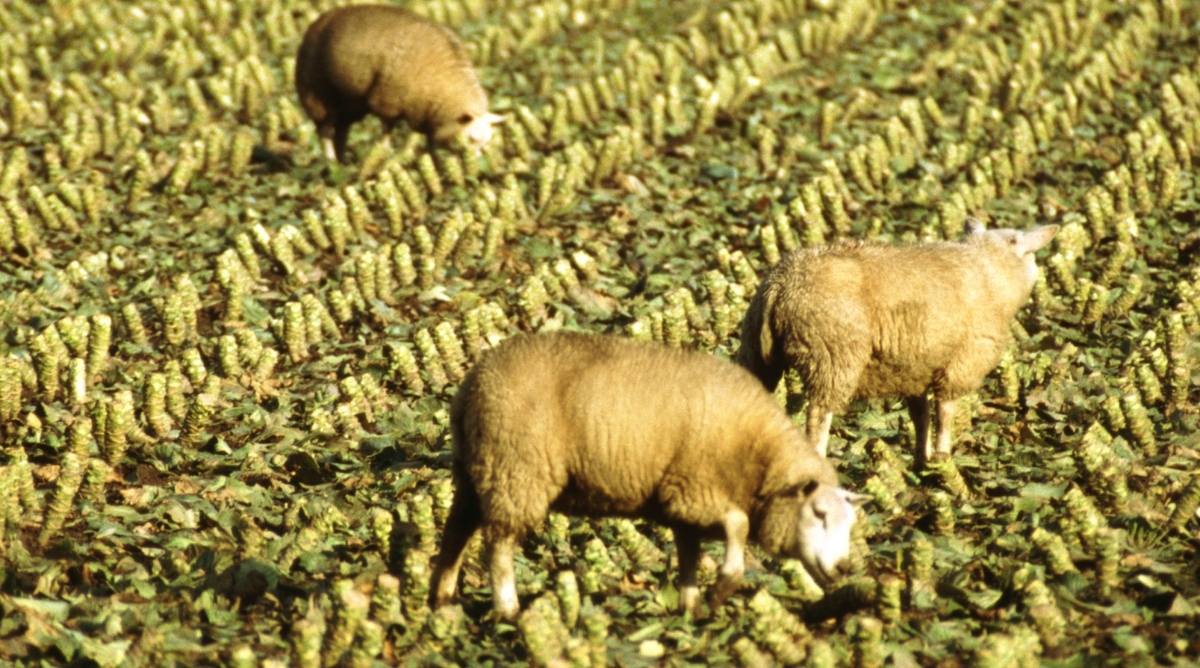Some foods are toxic to sheep, including citrus fruits, berries, cottonseed oil, and wild garlic. Other foods should only be given in small doses, like white potatoes, cabbage, and legumes. The safest food for your sheep is a quality blend of grass and other plants, such as clover and alfalfa.
Table of Contents
What foods can sheep not eat?

Foods to avoid feeding your sheep include:
- Cottonseed oil: Sheep tend to develop digestive problems when eating cottonseed oil (as well as other types of seed oils).
- Phenoxyethanol: Phenoxyethanol is a chemical found in many non-organic processed foods that is harmful to your sheep’s health if eaten in excess amounts.
- Citrus fruits: Citrus fruits — like oranges, lemons, and limes — contain high amounts of vitamin C, which is toxic to sheep in large quantities. The same goes for grapefruits, kumquats, and tangelos.
- Berries: Berries can kill your sheep by causing anemia or liver failure if they eat too many, or eat them too quickly. Since berries may grow naturally in your sheep’s grazing area, this is an important one to pay attention to.
Other foods that are harmful to sheep:
- Wild garlic (Allium vineale)
- Daffodils (Narcissus spp.)
- Poison hemlock (Conium maculatum)
- Poison ivy (Rhus radicans)
- Nightshade vegetables, such as eggplants
- Buttercups
- Bracken ferns
- Ragwort
- Rhododendrons
- Ponderosa pine
- Lily of the valley
- Foxglove
- Rhubarb
- Elderberry
- Azaleas
Foods that sheep can eat sparingly
- White Potatoes: Potatoes are great sources of carbohydrates for your sheep. Limit your sheep’s intake by using white potatoes instead of red potatoes (which are higher in starch).
- Cabbage: It’s common for sheep to eat cabbage leaves if they have access to it. Cabbage is okay for your sheep to eat, but eating cabbage in excess can cause indigestion, excessive gas, and bloating.
- Green Beans and Peas (Legumes): These are safe for sheep to eat in moderation because they contain no starch or sugar. They are also low in calories.
- Apples: Sheep can eat apples, but only in moderate quantities.
Why sheep might eat the wrong type of food
Numerous factors can lead to your sheep eating the wrong types of food. Here are some of the most common ones:
- Not giving them enough pasture to graze on
- Raising sheep together with other types of animals
- Eating plants from the garden
- Eating poisonous plants
- Feeding sheep grains
- Giving supplements not intended for sheep
- Giving them human food items that are not good for them
What sheep should eat instead

These are some foods to give your sheep to help them reach their nutritional needs:
- Grasses: This includes clovers (red clover), alfalfa (alfalfa hay), Timothy, ryegrass, fescue, and brome.
- Leaves: Mulberry leaves are ideal because of their texture and dense nutritional content.
- Hay: This is important to sheep’s nutritional requirements because it helps them maintain healthy teeth and an efficient digestive system. Adult sheep usually eat hay in the form of pellets or bales. Keep the hay dry and free from rotting or moldy parts by storing it in an airtight container (such as a silo) at room temperature.
- Pumpkins: Abundant in vitamin A and can ward off worms that may affect the sheep’s health.
How to give the right type of food to your sheep
A few guidelines for making sure your sheep get the right type of food:
- Start by giving your sheep plenty of fresh water, not just in a bowl but also through open access to clean, flowing drinking water. This is especially important during the dry season.
- Another good rule of thumb is to feed your ewes a diet similar to what they can find in their natural surroundings.
- Don’t give grains to your sheep in excessive amounts. While most of them love grains, too much is bad for them.
- The best food for your sheep is a quality blend of grass and other plants, such as clover and alfalfa. This will include plenty of minerals and vitamins for good health.

